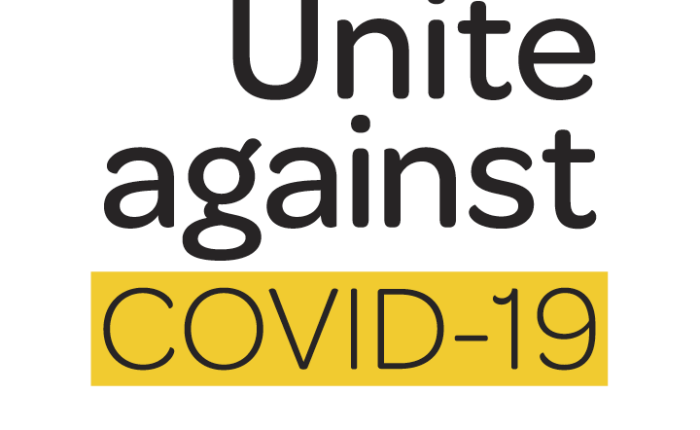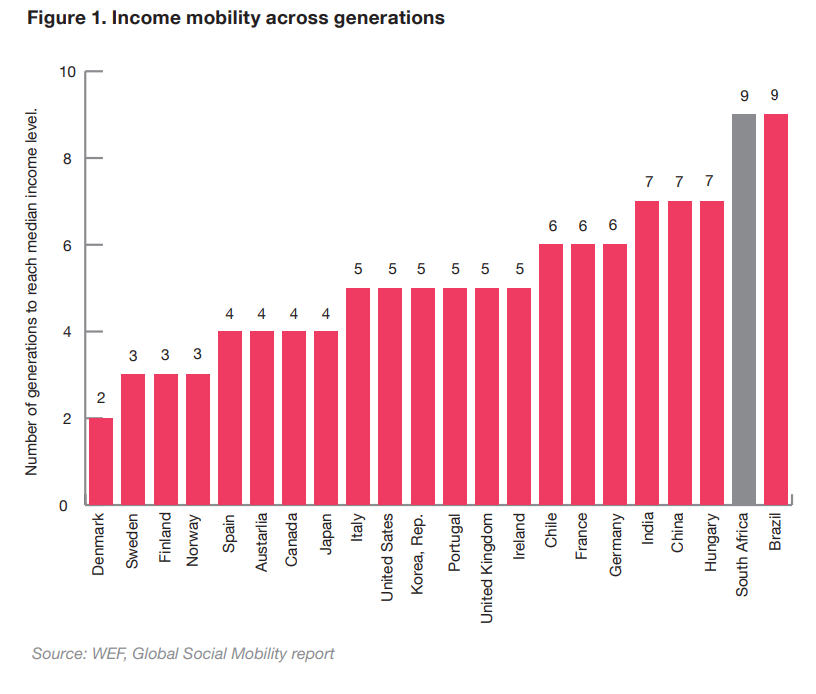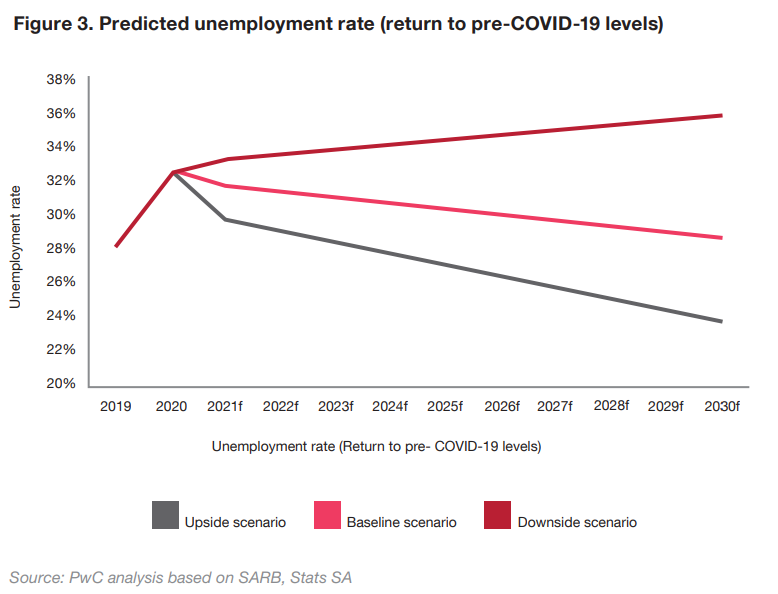A hard recovery of economy from the outbreak heat wave of Covid 19

PwC, a professional services firm, has released a new report on South Africa’s job market, presenting three potential scenarios for employment in the country. These scenarios are based on varying projections for a third wave of Covid-19 infections in 2021.
Although South Africa has begun its vaccination campaign, experts agree that the pace of vaccinations will not prevent the country from experiencing a third wave, expected around mid-year. The severity of this wave and the stringency of related lockdowns will directly affect the economic recovery, according to PwC. Under the baseline scenario, the country’s economy is expected to grow by 3.5% in 2021 and add 420,000 jobs. Total employment is projected to return to pre-pandemic levels by 2025, although a significant number of new workers will have entered the workforce by then.

As a result, PwC anticipates a slow decline in the narrowly defined unemployment rate, which could take nearly a decade to return to pre-pandemic levels. In the most optimistic scenario, the unemployment rate could reach 24% by 2030. A key challenge South Africa faces is inequality, which has worsened over the past 25 years since the country’s first democratic elections. According to PwC, data from the World Bank reveals that South Africa’s consumption expenditure Gini coefficient of 0.63 is higher than that of any other country.
The Gini coefficient, a common measure of economic inequality, ranges from 0 to 1, where 0 signifies perfect equality. PwC noted that social mobility in South Africa is so limited that, with current levels of mobility, it would take nine generations for individuals to reach the median income level. In contrast, this number is seven in China and India, six in Germany and France, five in the UK, and only two or three in Scandinavian countries. Despite improvements in welfare and basic services since 1994, poverty remains widespread, with approximately 49.2% of the adult population living below the upper-bound poverty line (UBPL), according to Statistics South Africa’s 2014/2015 living conditions survey.

PwC also highlighted that inequality and extreme poverty have been worsened by Covid-19 and the resulting economic downturn. Furthermore, business confidence, as measured by the BER Business Confidence Index, has steadily declined since 2006. Following the pandemic, the RMB/BER Business Confidence Index has remained negative since 2014. The South African economy shrank by 7.0% in 2020, but PwC predicts it will grow by 3.5% in 2021, with the economy taking four to five years to return to 2019 levels.